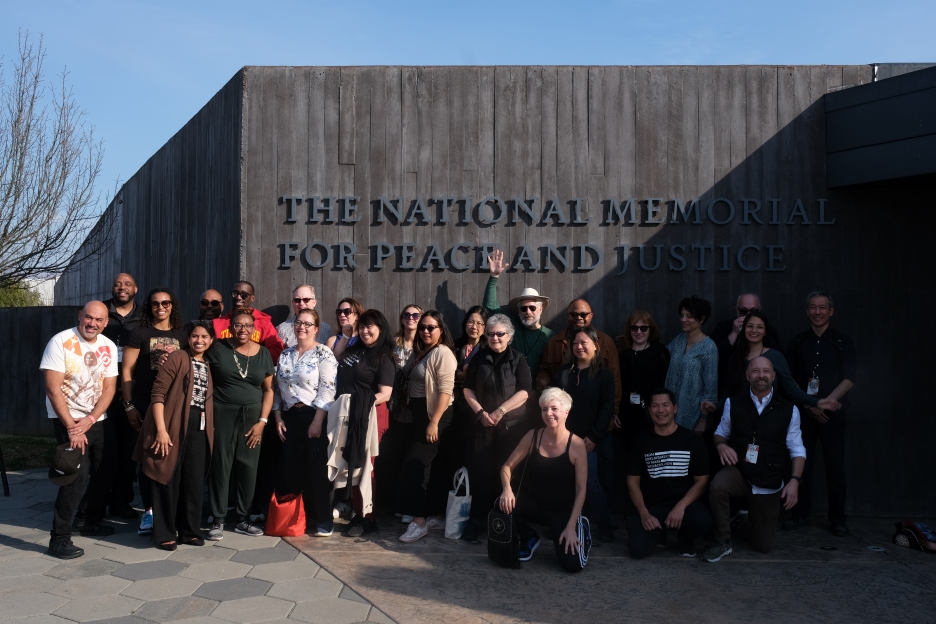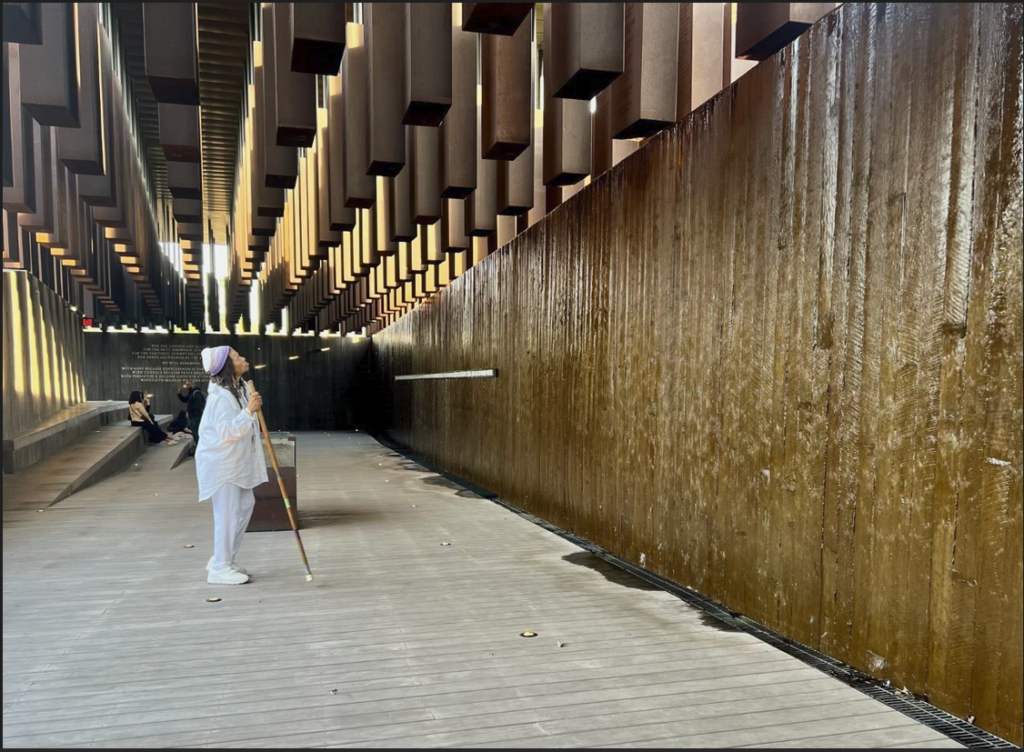
#PursuingProgress
This past February, a group of 50 people organized by GLIDE traveled 2,230 miles from San Francisco to the rolling hills of northern and central Alabama. The group included a team of doctors, nurses, and leaders at UCSF; formerly incarcerated men from GLIDE’s Men in Progress (MIP) program; and a diverse group of community leaders from across San Francisco.
The Alabama Pilgrimage, a transformative journey organized by GLIDE’s Center for Social Justice, is an immersive learning program aimed at uncovering the truth about American history.
Our journey began in Birmingham, AL at the 16th Street Baptist Church, the site of the tragic 1963 bombing that killed four young Black girls. From Birmingham we headed south to the heart of the black belt, a swath of central, southern Alabama known for the region’s rich, black soil. In the rural countryside of Lowndes County, we met with leaders from the Black Belt Unincorporated Wastewater Program whose work is focused on environmental racism for Black families (many who lack modern sewage infrastructure).
MIP participants Jamien Aaron Johnson (L) and Deshawn Dupre Brown (R) on the Edmund Pettus Bridge

Continuing our pilgrimage, we arrived in Selma, traversing across the historic Edmund Pettus Bridge – a solemn reminder of the struggles endured during the Civil Rights Movement. Our path led us eastward to Tuskegee University, a beacon of excellence among Historically Black Colleges and Universities. Finally, our journey culminated in Montgomery, the epicenter of the modern Civil Rights movement where we visited the extraordinarily powerful Legacy Museum and National Memorial for Peace and Justice.
Through firsthand experiences, the pilgrimage sheds light on disparities in health and criminal justice outcomes while challenging prevailing narratives surrounding oppression, crime, and punishment. This five-day trip, now in its fifth iteration since 2018, stands at the forefront of GLIDE’s mission to confront systemic racism and injustice in America.
The journey is an intense and unvarnished look at America’s troubled history of racial discrimination. The aim of the trip is to become proximate to the lives of people who have experienced generational trauma and identify a process of reconciliation.
Raise Up statue at the National Memorial for Peace and Justice
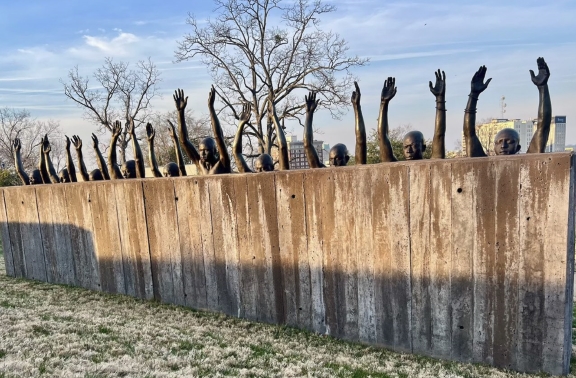
One of the brilliant community leaders we met at the Selma Center for Nonviolence, Truth, and Reconciliation, Mama Callie, offered a direct look into this work. As the sun set over the Alabama river – where 200 years ago thousands of enslaved people were transported up and down the river – the group listened spellbound as she shared her tragic yet inspiring lived experience with medical racism, gun violence, and incarceration.
Mama Callie’s story begins on the day she heard her son was shot and lay dying in a hospital bed. As she rushed to the hospital to be with him, overwhelmed by fear and grief, she was told by the hospital staff to “quit her carrying on” before she could see him. In a moment all too familiar for many Black Americans, she was forced to detach from her emotions, stifle her grief, and conform to a social system that targets people who look like her.
Mama Callie
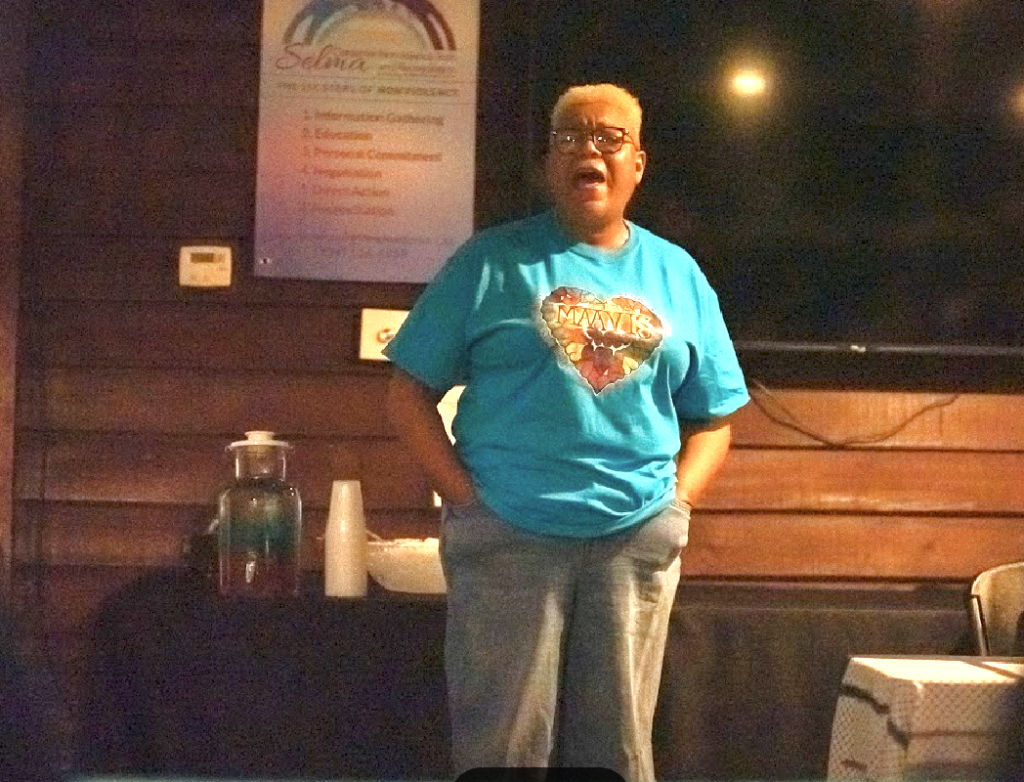
Several months later, Mama Callie found herself facing the man accused of killing her son in a courtroom. During his trial, she pleaded with the Judge to forgive him and consider leniency in his sentencing. She explained she did this out of a deeply felt personal faith in the power of redemption and forgiveness.
Years later, a familiar man approached her in a chance encounter on the street. It was the man who killed her son. He hugged her and thanked her profusely for her ability to see his humanity despite the tragic circumstances, sparing him a senseless life of incarceration.
Mama Callie’s story was one of many deeply moving tributes we heard in Alabama. This journey exposed the deep seated wounds of generational trauma and systemic racism that continue to haunt people of color, even into death, as Mama Callie repeated several times.
A stop at the Booker T. Washington sculpture at Tuskegee University
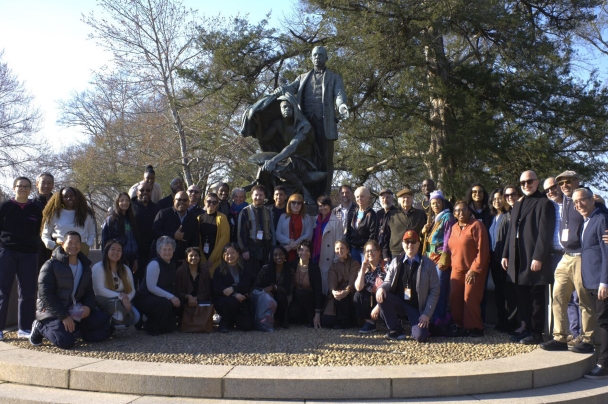
The Pilgrimage illustrates a direct connection between the generational trauma of slavery and the disproportionate rate of mass incarceration and health disparities Black Americans continue to face in our country today.
Over the next few weeks, we’ll share stories of incredible personal transformation from the participants on this trip and changes we commit to at GLIDE and with our partner organizations towards the goal of full reconciliation to atone for our troubled past. We will also debut a five minute documentary on this experience called #PursuingProgress later this spring.
We invite you to join us on this journey as we share these truths with you towards GLIDE’s goal of a more just, equal, and loving world.
